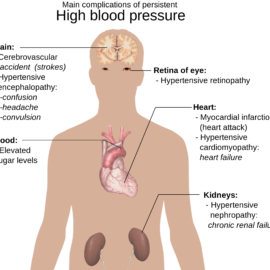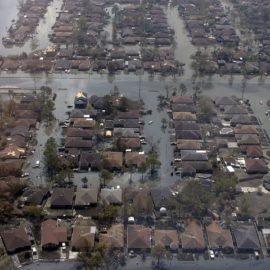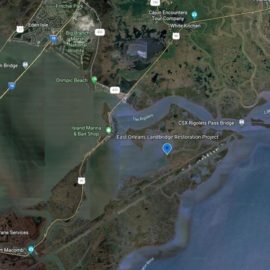
BP hired many to help with cleanup in 2010. They got paid but some got sick and are still fighting to get paid.
Caleb Breaux and Donald Dumas are among tens of thousands of Gulf Coast residents who took jobs cleaning up BP’s oil spill in 2010, trying to blunt the effects of the worst offshore environmental disaster in U.S. history. Breaux, 42, of Lockport, is a horticulturalist who owned a landscape nursery when the BP spill started drifting into the Louisiana marsh. Dumas, 66, of Pensacola, is homeless and was unemployed when BP’s oil hit the Florida Panhandle. But both ended up getting sick after touching and breathing in the oil and chemicals used to break it down. Both were excluded from a 2012 settlement designed to pay cleanup workers for their medical conditions. And both are among more than 5,000 former cleanup workers who have filed medical claims against BP and have yet to receive compensation. While tens of thousands of Gulf Coast residents received compensation from BP for their financial losses, many of those who were directly in contact with the oil spill are still waiting for compensation or are being turned away.
nola.com
Where are the lawyers as no one has gotten court date.
Not one has persuaded a federal court to hold a trial on the merits of a medical claim. And only one plaintiff, in Tennessee, has managed to settle with BP out of court. In hundreds of identical responses filed in federal courts across the Gulf Coast, BP is now advancing two arguments: that the workers’ own negligence caused their injuries, or that the contractors BP hired could be liable. But the 2012 settlement specifically locked claimants into suing only BP and its affiliates. BP spokesman Paul Takahashi declined to comment for this story, citing the company’s policy of not commenting on active litigation. Since the 2012 settlement, BP has changed its stance on whether its oil and the cleanup chemicals could have made people sick. Back in 2012, BP agreed to pay claimants between $1,400 and $60,700 for specific conditions that BP admitted could have been caused by exposure to the oil and cleanup chemicals. More than a decade later, court records show 22,800 claimants received an average of less than $3,000 apiece, mostly for acute conditions like conjunctivitis, sinusitis and skin rashes that were diagnosed soon after the cleanup was done and quickly went away.
One word, one meaningful word is the poblem.
Only 40 claims were approved for chronic conditions that merited maximum payments of $60,700. That’s because of a dispute about one word in the settlement. In 2012, BP and the plaintiffs agreed that anyone whose condition “manifested” before April 16, 2012, could get paid. The agreement said anyone whose condition was “later-manifested” would have to sue BP later, and prove that BP’s oil and chemicals caused his or her specific injuries. In 2014, BP went back to court and noted the settlement defined a “later-manifested physical condition” as one that was “first diagnosed … after April 16, 2012.” The company used that interpretation to argue it didn’t matter when the condition first appeared, but only when it was diagnosed by a doctor, and only if it was specifically recorded as being chronic. Plaintiffs’ attorneys argued that was never their intent. They said “later-manifested” was supposed to refer to cancer and other conditions that develop over time, not to chronic conditions that showed up immediately but couldn’t be diagnosed as chronic until they had lingered.
A District Judge said BP is wrong.
U.S. District Judge Carl Barbier stated from the bench that the new interpretation would force huge numbers of settlement members out of the deal. But he concluded the plain meaning of the language was clear and BP’s interpretation was correct. Dumas is one of thousands who bore the brunt of that decision. He claimed he suffered ocular issues almost right away while working in Perdido Key, Fla. After his four-month stint was over in the fall of 2010, Dumas said he couldn’t afford to go to a doctor. He did get a diagnosis of chronic conjunctivitis on Aug. 25, 2012, but that was four months too late.
Many cases made it to court but were thrown out.
From 2018 to 2021, more than 4,000 lawsuits alleging BP caused later-manifested conditions were thrown out of court, according to federal court records. One was Dumas’ case, which was dismissed in a batch of 28 cases by the Northern District of Florida in December 2021. The judge ruled those claimants had received workers’ compensation for some of their injuries and that made them ineligible for collecting compensation for later-manifested conditions under the settlement. Dumas’ attorney, Allen Lindsay of Milton, Fla., said those claimants never made a workers’ comp claim for their chronic conditions, just their acute illnesses. But his appeal was rejected. “I think that’s wrong. Dead wrong,” Dumas said. “And I think they was wrong for not telling us the damage that that oil could do to our bodies all these years. They don’t even want to compensate you for nothing.”
Conditions that develop over time are now showing up.
Claims for conditions that truly did show up later, including cancer and cardiac disease, have also been rolling into court over the last few years. BP has responded by claiming its oil and chemicals were not toxic enough to have caused those illnesses. Breaux, for one, was diagnosed with Stage 4 non-Hodgkin’s lymphoma in 2020. He said his oncologist at MD Anderson in Houston told him a chemical caused his cancer. Breaux had massive tumors from his neck to his groin. Records show his chemotherapy and other treatments have cost more than $605,000 in two years. Most of it was covered by health insurance, but he was laid off recently and lost his insurance. He has new cancer screenings scheduled and he’s still waiting for a hearing. “I know they may be tired of dealing with it and they feel they’re done with it,” Breaux said. “But they’re not, obviously. I mean, I’m not done with it.”
BP has worn them down.
Plaintiffs’ attorneys with thousands of clients are giving up on their cases. Lindsay said he hasn’t given up on his remaining 150 clients, but he isn’t optimistic. “Sometimes justice isn’t served,” Lindsay said. “That’s the real bottom line here.” There is some hope for plaintiffs, however, especially those like Breaux with cancer claims. Breaux’s attorney, Miami-based Craig Downs, keeps 130,000 samples of oiled material collected in the cleanup and has a science team running toxicological tests. Scientific studies published in the last few months have reported higher risks of long-term neurological and cardiovascular conditions among thousands of U.S. Coast Guard members who responded to the BP spill. “We’re not going anywhere,” Downs said. “We believe it’s going to be a good year and we’re going to turn the tide on the science.”
To help then to get sick and then to be told it was my fault.



